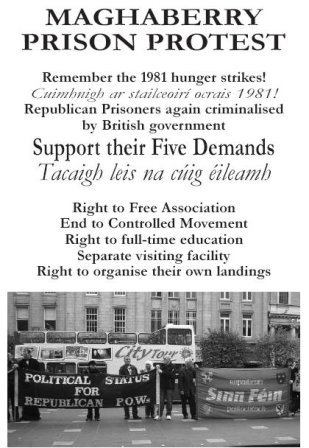Questo è l'articolo pubblicato da Irish News
Hunger Striker's dad (100) 'politely declines' Queen's birthday message
Four months later Mr Hughes’s nephew Tom McElwee became the ninth prisoner to die after 62 days on hunger strike.
Mr Hughes is understood to have been a member of the IRA in the 1920s and has been a strong supporter of the peace process in Co Derry.
Speaking from his home last night Mr Hughes’s son Oliver confirmed that his father had been contacted by Buckingham Palace earlier this month to inquire about whether he would accept a telegram from the Queen to mark his 100th birthday today.
“We thanked them for their interest but politely declined the offer,” he said.
“My father has been a proud republican all his life so it wouldn’t have been appropriate,” he added.
Mr Hughes did, however, accept a telegram of congratulations from President Mary McAleese.
Oliver Hughes recalled his father’s reaction when Francis told him he was going on hunger strike.
“My father had a tear in his eye but told Francis that he would support him 100 per cent,” he said.
“My parents were heartbroken when Francis died but they were proud of his sacrifice and that of the other hunger strikers.
“My parents spoke about Francis every day.”
Deputy First Minister Martin McGuinness, who is due to visit Mr Hughes today, paid tribute to the veteran republican.
“During very difficult and dangerous times Joe and his late wife Maggie stepped forward at great personal loss to themselves and their family,” he said.
“He is a proud and strong Irishman and a solid republican who stood firmly behind his son as Francis and his comrades faced down Margaret Thatcher and her criminalisation policy in Long Kesh in 1981.”






